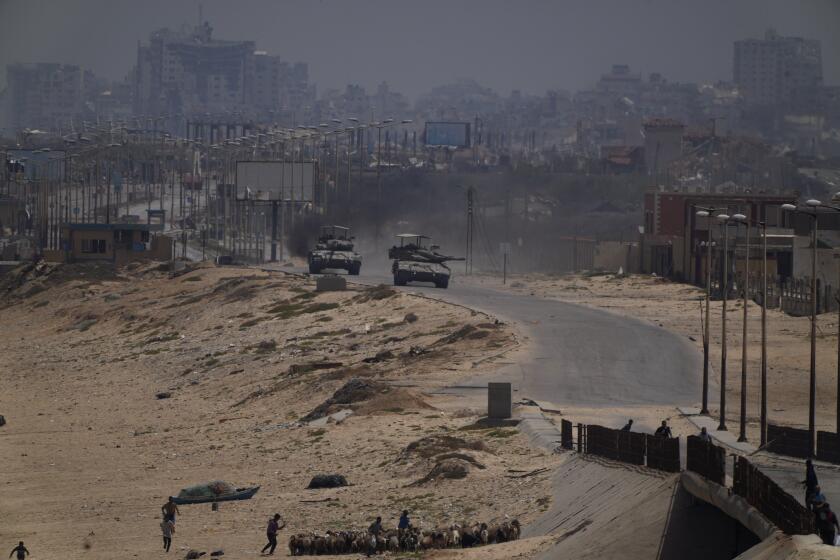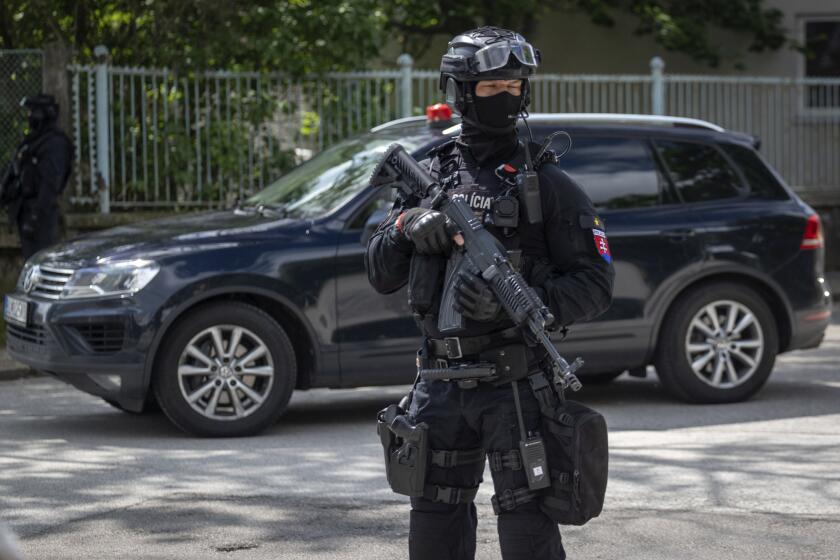NATO to Set Up Group to Share Uranium Facts
NATO announced Wednesday that it will set up a group to exchange information on possible health risks from depleted uranium munitions because of public concern that they may lead to cancer and other illnesses.
NATO Secretary-General George Robertson told reporters there is no scientific evidence that exposure to armor-piercing munitions containing depleted uranium poses a significant health risk. Nevertheless, the North Atlantic Treaty Organization has set up an action plan because of European countries’ fears about health risks to soldiers assigned to the Balkans, where depleted uranium munitions were used in combat, he said.
Robertson said the plan calls for full NATO cooperation with any investigations on depleted uranium’s risks. It also includes consultation with countries that contribute peacekeepers to Bosnia-Herzegovina and Kosovo and creation of a clearinghouse to exchange information on depleted uranium.
Today, British media carried reports that a British army document warned almost four years ago that soldiers exposed to dust from depleted uranium shells might be at risk of developing cancers.
The internal document for military officials said that soldiers doing salvage work inside vehicles that had been damaged by depleted uranium shells faced up to eight times the acceptable level of uranium exposure, according to the British Broadcasting Corp. and newspaper reports.
The Ministry of Defense immediately countered that the document was a “discredited” draft paper, prepared by a trainee and never endorsed by senior staff.
Depleted uranium, a slightly radioactive heavy metal, is used in anti-armor munitions because of its high penetrating power. U.S. forces fired weapons containing depleted uranium in Bosnia in 1994 and 1995, and in 1999, NATO fired such weapons during its bombing of Yugoslavia.
Numerous studies into the effects of depleted uranium have not revealed any connection between the metal and cancer. But concerns among European nations have intensified since Italy began studying the illnesses of 30 soldiers, including six who died of leukemia.
In France, four soldiers are being treated for leukemia. Several European countries have begun screening soldiers who served as peacekeepers in the Balkans. Many civilian aid agencies are doing the same with their personnel.
On Wednesday, Portuguese Science Minister Jose Mariano Gago said Portuguese scientific experts had found no dangerous levels of radiation during tests in Kosovo over the preceding four days. Gago told Portuguese state radio RDP that readings taken around the central Kosovo town of Klina, where Portuguese peacekeepers are stationed, showed normal levels of background radiation.
“The possibility of generalized contamination in the area is therefore out of the question,” Gago said.
One Portuguese peacekeeper has been diagnosed with cancer since returning from Kosovo, a province of Serbia, the main Yugoslav republic.
In Berlin, German Defense Minister Rudolf Scharping insisted that there is no evidence to support growing concern that weapons containing depleted uranium pose a health risk.
“The results of the tests on [German] soldiers deployed in Kosovo, and on soldiers never deployed there, show no differences,” Scharping said.
More to Read
Start your day right
Sign up for Essential California for news, features and recommendations from the L.A. Times and beyond in your inbox six days a week.
You may occasionally receive promotional content from the Los Angeles Times.






